Gas turbines are highly efficient, sensitive machines that can be used to generate electricity or as a mechanical drive to power different processes. They are used all over the world in environmental and operational conditions that can vary drastically. That's why the filter solution should be adapted to offer adequate protection.
In the power generation industry, site-specific air filtration will ensure maximum efficiency for base load plants, and worry-free ownership for peaker plants. As renewable energy increases, the market competitiveness for generators and gas turbines needs to be more efficient to maintain profitability. Camfil smart air filtration solutions are designed to provide the highest profitability.
With narrow spark spread and increased competitiveness, base-load plants can improve margins by protecting their gas turbine with adapted EPA filtration. As every gain in efficiency means longer run time and higher profitability, our filtration solutions are designed to maintain the engine in pristine condition and increase fuel efficiency. As base load plants are critical to the grid, our reliable and long-life EPA filtration solutions enable you to increase availability and reliability.
Peakers have to go online quickly, often without notice. Our high-performance, robust filter solutions ensure that you can ramp up anytime. When availability on-demand is vital, reliable solutions allow you to operate at the highest fuel efficiency with the lowest emissions, enabling long-term prosperity.
In O&G applications, whether on offshore production platforms, fracking sites or refineries, turbines often face the challenge of a variety of aggressive contaminants like salt, heavy hydrocarbons or aggressive gases. In critical processes, these challenges need to be taken seriously. Backed by more than 50 years of experience, our solutions are flexible and optimised for each application, from compact EPA solutions offshore, to mobile units on fracking sites, to molecular solutions when subjected to corrosive gas. If you have specific requirements, there's a good chance we have the industry experience to help you.
With test rigs that mimic extreme conditions, from salt & water spray to high air flows and high burst pressure, our R&D group is focused on ensuring reliability. We challenge our products in real site conditions using our mobile testing trailers, the CamLabs, and are always ready to show you actual performance data. Our patented solutions like the CamGT 3V-600 have pushed the industry limits when it comes to water handling capability, salt removal efficiency and lower operating pressure drop. When reliability is critical, your air filters should be just as dependable.
We strive to understand air and local conditions better than anyone else. A little obsessive? Maybe. But, when up to 98% of what goes into your equipment is air, we believe it’s a good thing. By providing the facts you need to empower your decisions, you can optimise output and efficiency. As the most predictable air solutions provider, Camfil keeps your equipment working better and longer, while removing the element of surprise. We help you stay in control.
If you are designing a new system or simply looking to improve your current performance, ask us about our life cycle cost software, our air sampling solutions or for a CamLab test.
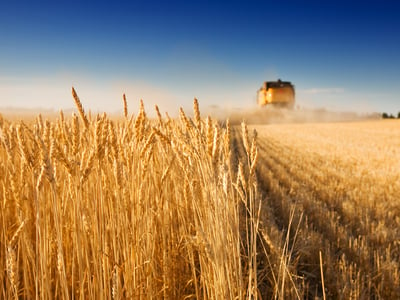
In rural and agricultural sites, turbines require protection from seasonal contaminants and small particles. Fouling is caused by particles under 1 micron and even in apparently clean environments, EPA filtration is a must-have performance booster.
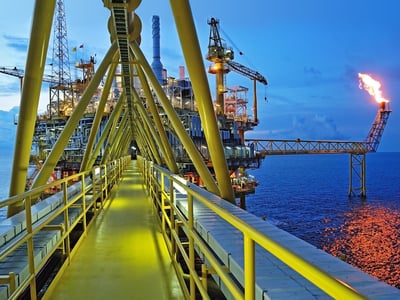
Offshore installations must manage salt, water ingress and fine particulates from equipment exhaust. They face stringent footprint restrictions and logistical challenges. Multi-stage, built-in drainage and final hydrophobic EPA filtration is recommended.
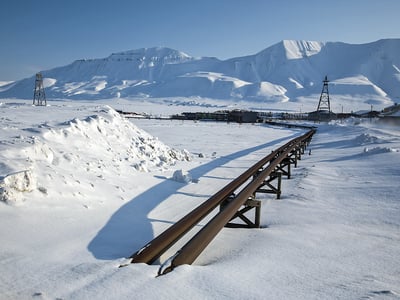
Colder climates bring the added challenges of heavy snow and frost. Icing on filters can cause high pressure drop, and ice at the bell mouth can cause foreign object damage.

In dry, coarse dust environments, maintaining low pressure drop and long filter life are key to increasing availability. When sites are also challenged with fine particulates, salt or corrosive contaminants, combined systems offer improved protection.
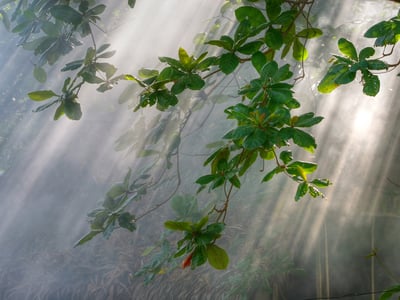
Coastal and tropical climates present the added risk of water ingress. Soluble particulate carry-over increases the risk of fouling and corrosion, especially if salt is present. Multi-stage, built-in drainage and final hydrophobic EPA filtration is recommended.
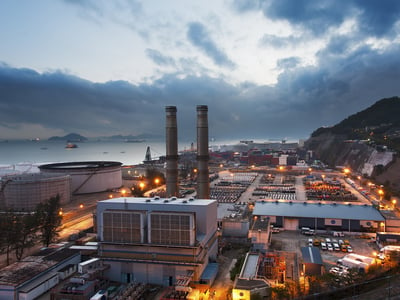
Industrial and urban sites endure fine corrosive particulates from combustion and industrial processes. Low-pressure, multi-stage EPA filtration is recommended as it will prevent fine particulates from fouling the turbine, maintaining its optimal performance.

The Watson Cogeneration Plant operates 4 GE, Frame 7EA engines and produces 400 MW for local refineries and sells excess electricity to the grid. The Plant Manager requested air intake efficiency, pressure drop, and water tests from Camfil. The test results revealed the true impact of the synthetic cartridge filters on gas turbine performance.
Case studies Energy and Power SystemsA leading steel producer upgraded blower filtration, extending final filter life by 16x, pre-filter life by 4x, and achieving 100% operational availability.
Case studies Energy and Power SystemsGPSC Thailand upgraded the air filters on six of their gas turbines to TurboPulse T12 cartridge filters, achieving $520 000 USD savings annually, 166 000 MMBtu fuel reduction per year, 8 800 tons of CO2 reduction annually, and 3x improved compressor efficiency
CCC Pesquería in Mexico upgraded to TurboPulse T10 filters, cutting power degradation by 5x, boosting annual output by ~20,000 MWh, adding $600,000+ in yearly profit, and lowering their carbon footprint.
CamGT 3V-600 static final filters and Cam-Flo GT Hybrid pocket air filters eliminate 6 offline washes per year, improve gas turbine compressor efficiency, and boost power output for a Singaporean coastal cogeneration power plant.
A side by side comparison shows the benefits of higher grade GTC F9 gas turbine air intake filters for two RB211 gas turbines, even in very clean rural areas. It means a cleaner engine, higher power output, fewer water washes, and fuel savings.
Air sampling, CamLab on-site analysis, as well as a Life Cycle Cost analysis show that the CamGT EPA filters will result in no shutdowns for turbine water washes, final filter shutdown extended to 5 years, decreased risk of corrosion and maximum power output.
Frequent pressure and short filter replacement intervals led to high operational costs. Camfil's Cam-Flo air intake pre-filters and CamGT EPA air filters met their goal of 8000 hours of life and reduced pressure drop by 50%.
Egat North, the largest energy producer in Thailand, upgraded to Hi-Flo and CamClose air intake pre-filters as well as CamGT final EPA air filters and lowered degradation by 70%, reduced water wash requirements, and saved approximately $1.24M USD per year.
AG Power delivers reliable power & heating to the district due to gas turbine filtration. In addition, they saved 1,100 tons of CO2 & 650,000 sM3 of fuel/year.
Located offshore Ivory Coast, Africa, the CamGT EPA filter solution saves Foxtrot International 3 shutdowns per year and eliminates salt corrrosion, without compromising on footprint.
An energy plant on the pacific coast upgrades their Siemens 501F gas turbine filtration to the CamGT 4V-300 air intake filters after tests show its water and salt handling capabilities.
The CamGT air filter line has been turbo-boosted to maximize power, profits, and uptime of your gas turbine.
Learn how The Value Rating, the easiest way to select air filters for gas turbines, works.
Meeting stricter marine emissions standards while continuing to run reciprocating engines will significantly increase operating costs for commercial shipping operators. To support low emissions, liquified natural gas is becoming a key marine fuel due to increasing availability and clean combustion.
With a growing demand for greener practices, and rising operational costs, it has become imperative that gas turbine operators cut their carbon footprints. Upgraded air intake systems are one of the easiest, most cost-effective ways to meet these demands, while improving operations at the same time.
Hot corrosion is a source of nonrecoverable degradation on gas turbines. It is a chemical reaction between salts, sulfur and heat, where the damages can reduce an engine’s life by up to 75%. One of the most effective methods is to eliminate the contaminants triggering the chemical reaction. This paper examines the causes of hot corrosion and assesses various methods of mitigation.
Upgrade your gas turbine air inlet filters to cut carbon emissions per MWh produced.
Protect your gas turbine from ice formation during high humidity and low temperatures. Insufficient icing protection may result in inlet filter system issues and ice formation at the turbine inlet.
To answer this question, let's look at the difference between a land based gas turbine and a jet engine.
Camfil helps customers reduce their carbon footprint with EPA hydrophobic air inlet filters.
Tata Power Ltd, India's largest integrated power company requests Camfil for a Cam-Flo pocket bag filter and CamGT static air filter retrofit after heavy hot corrosion in the gas turbine and high pressure drop jeopardized performance and safety.
Dalkia, a leader in the French gas turbine market, launched a national comparative test for various air intake filters, including Camfil's Hi-Flo pre-filters and CamGT EPA filters, to increase power production for their 10 GE LM6000 gas turbines.
Noise complaints from neighboring communities in Thailand prompted the plants to evaluate a noise-reducing filtration system. The CamGT high efficiency air filter solution not only improved the noise levels, it also increased turbine availability, improved pressure drop and helped the gas turbine produce more power.
Gas Turbine Application: Do you operate in a coastal or offshore site? Unfortunately, you probably have to deal with corrosion related issues. You can, however, operate corrosion-free if you take the right measures.
Turbomachinery: Air inlet filtration systems should be designed to suit the environment. Because of market pressures, a general design has been used in widely varying environment conditions. Before making your purchase, get an assessment.
Gas Turbine Application: The quality of air inlet filters is essential for optimal gas turbine performance. Protecting the turbine with site-specific filtration solutions will assure profits are kept high.